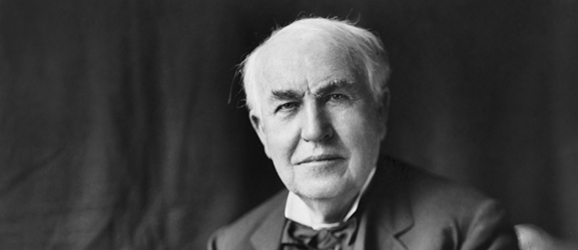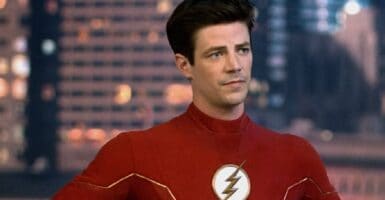Test Your Skills With Thomas Edison’s Job Interview Questions
This article is more than 2 years old
 Google is notorious for tossing tricky interview questions at job applicants. I’m not talking things like, “Name your worst quality,” either. I mean questions such as “How many golf balls can fit in a school bus?” or “How much should you charge to wash all the windows in Seattle?” They’re designed to test the applicant’s ability to think outside the box, to apply logic and problem-solving skills, and to work under pressure. The tech giant with the funny name isn’t the first cutting-edge entity to expect a lot from its applicants, however. Google is really just following in the tradition of Thomas Edison.
Google is notorious for tossing tricky interview questions at job applicants. I’m not talking things like, “Name your worst quality,” either. I mean questions such as “How many golf balls can fit in a school bus?” or “How much should you charge to wash all the windows in Seattle?” They’re designed to test the applicant’s ability to think outside the box, to apply logic and problem-solving skills, and to work under pressure. The tech giant with the funny name isn’t the first cutting-edge entity to expect a lot from its applicants, however. Google is really just following in the tradition of Thomas Edison.
In addition to developing the light bulb, the phonograph, and the motion picture camera, Edison was also apparently very picky about who he hired. The folks over at the thoroughly addictive Mental_Floss have posted a look at the system Edison designed to weed out the unworthy from those college grads who were applying to work for him. Edison compiled a list of 150 questions, stretching across a broad array of subjects, to see if applicants lived up to his high expectations. (Surprisingly, “Do you work for Nikola Tesla?” was nowhere on the list.)
Here are some of Edison’s 150 questions; you can click over to Mental_Floss for a cheat sheet with answers.
- Who was Francis Marion?
- Where is the River Volga?
- Who invented logarithms?
- What is the first line in The Aeneid?
- What war material did Chile export to the Allies during the War?
- Who was the Roman emperor when Jesus Christ was born?
- Where is the Sargasso Sea?
- Of what is brass made?
- Who was Leonidas?
- Who discovered the X-ray?
- Where do we get shellac?
- Why is cast iron called Pig Iron?
- Who was Bessemer and what did he do?
To pass the test you had to score 90% or higher…a feat that only around 35 people accomplished. That’s out of some 500 applicants, a statistic which led Edison to conclude that “Only 2% of the people think.” Harsh words, but anyone who has watched the evening news or reality television recently can’t help but conclude that Edison was being overly generous.












